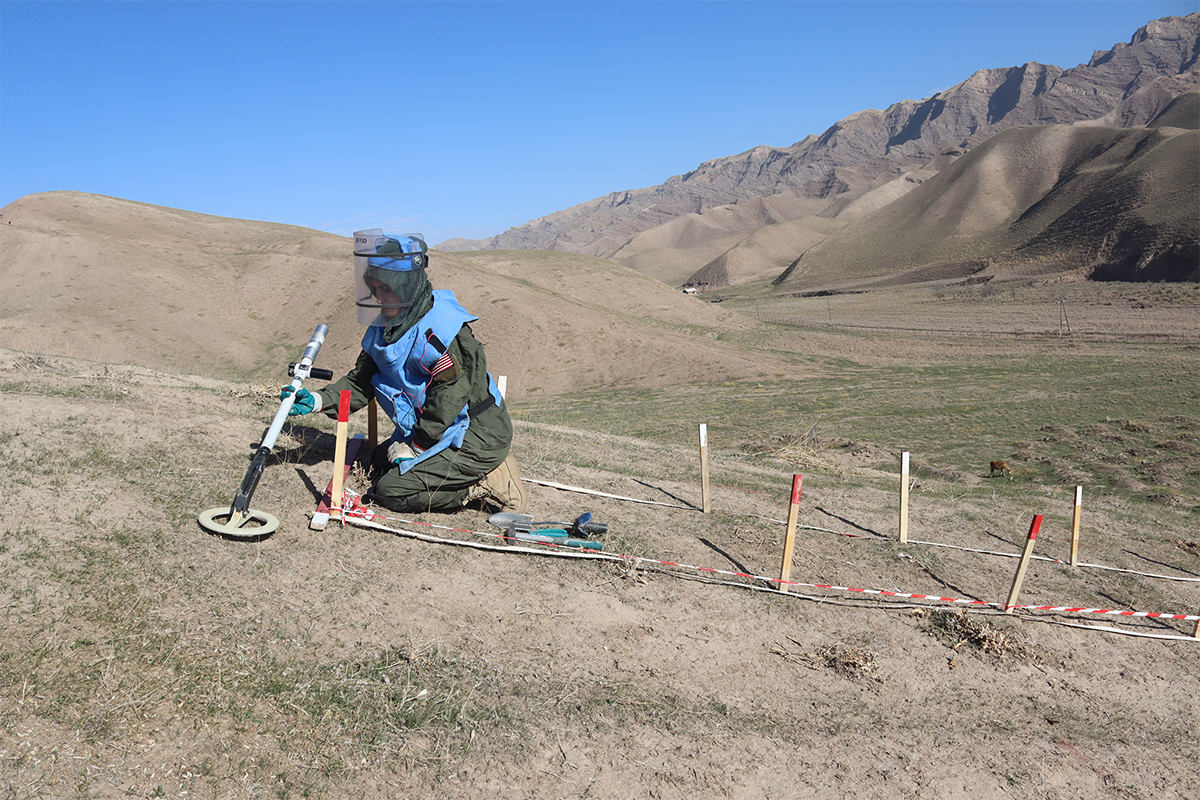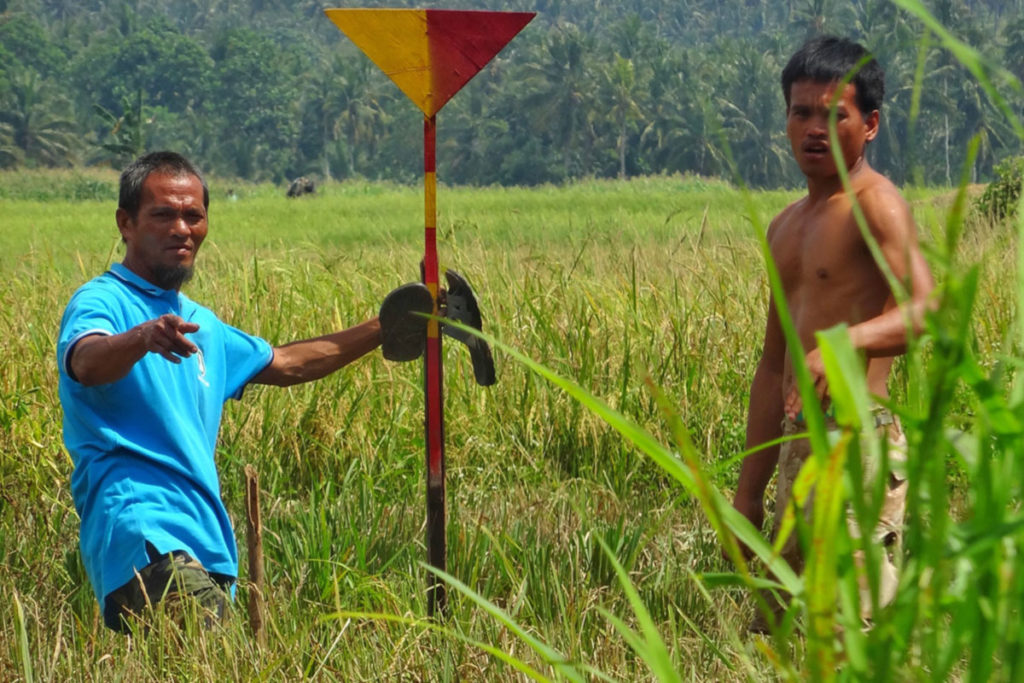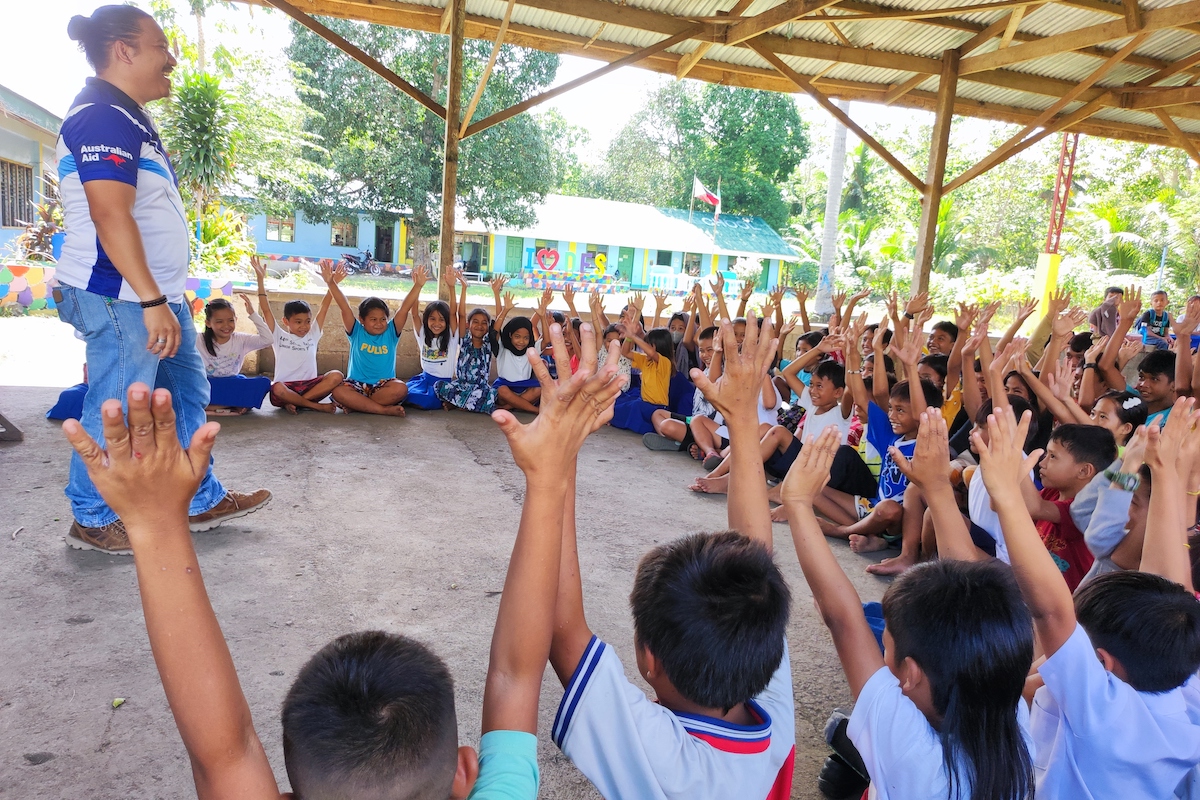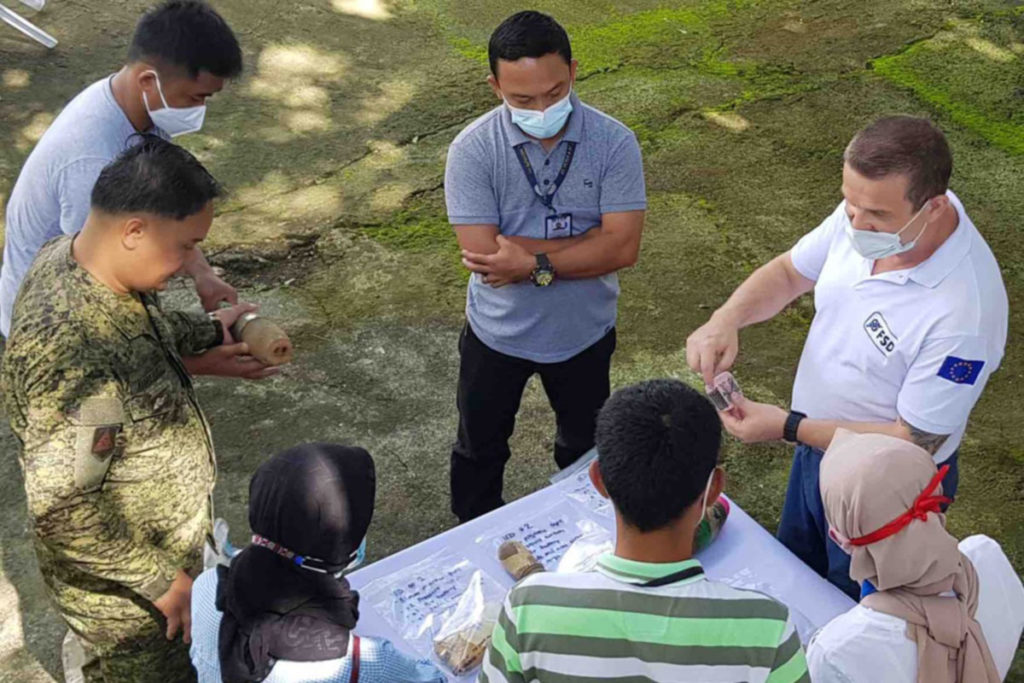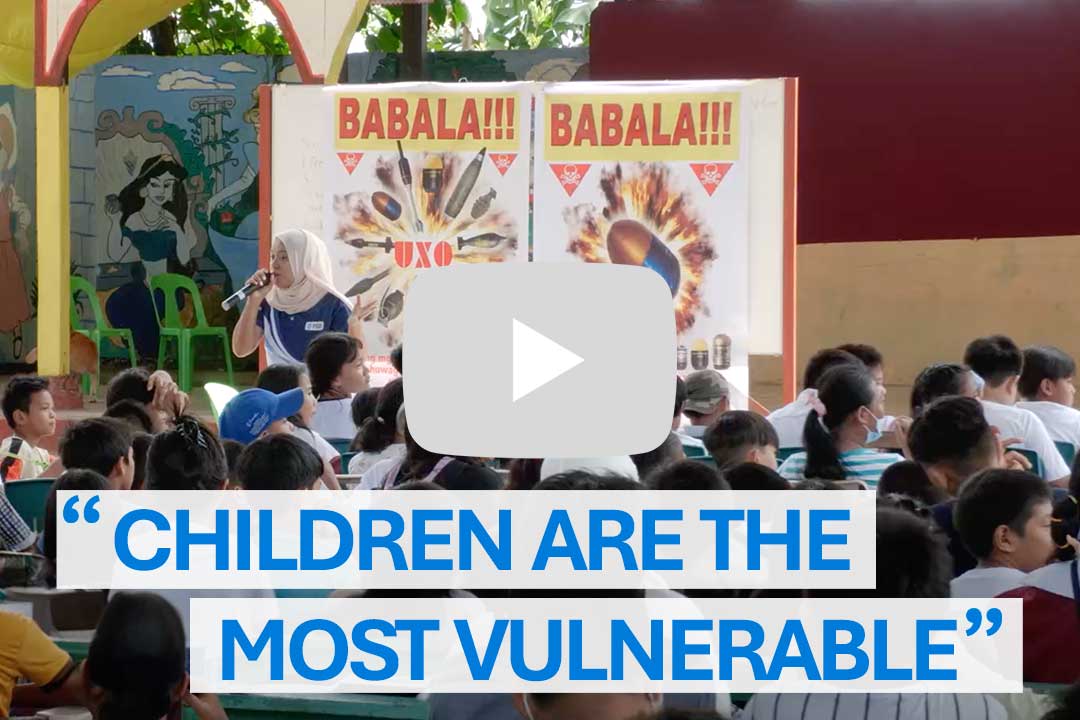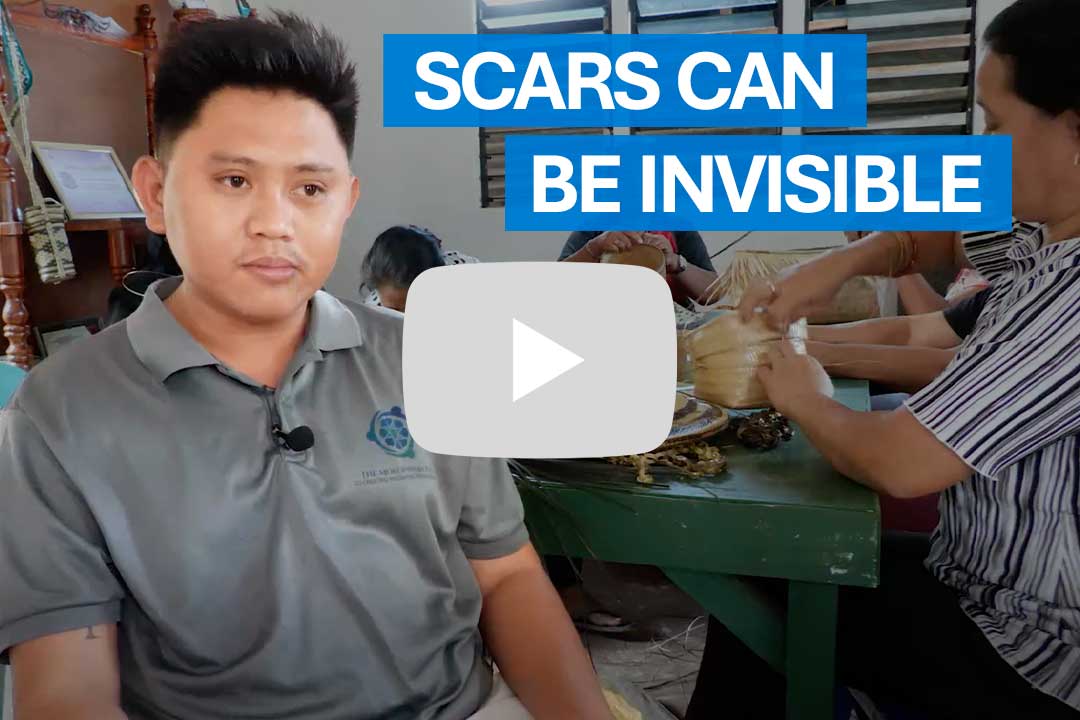Philippines
By engaging the various stakeholders through the provision of mine action activities, FSD educates the local populations of the risks of explosive ordnance and supports the ongoing peace process.
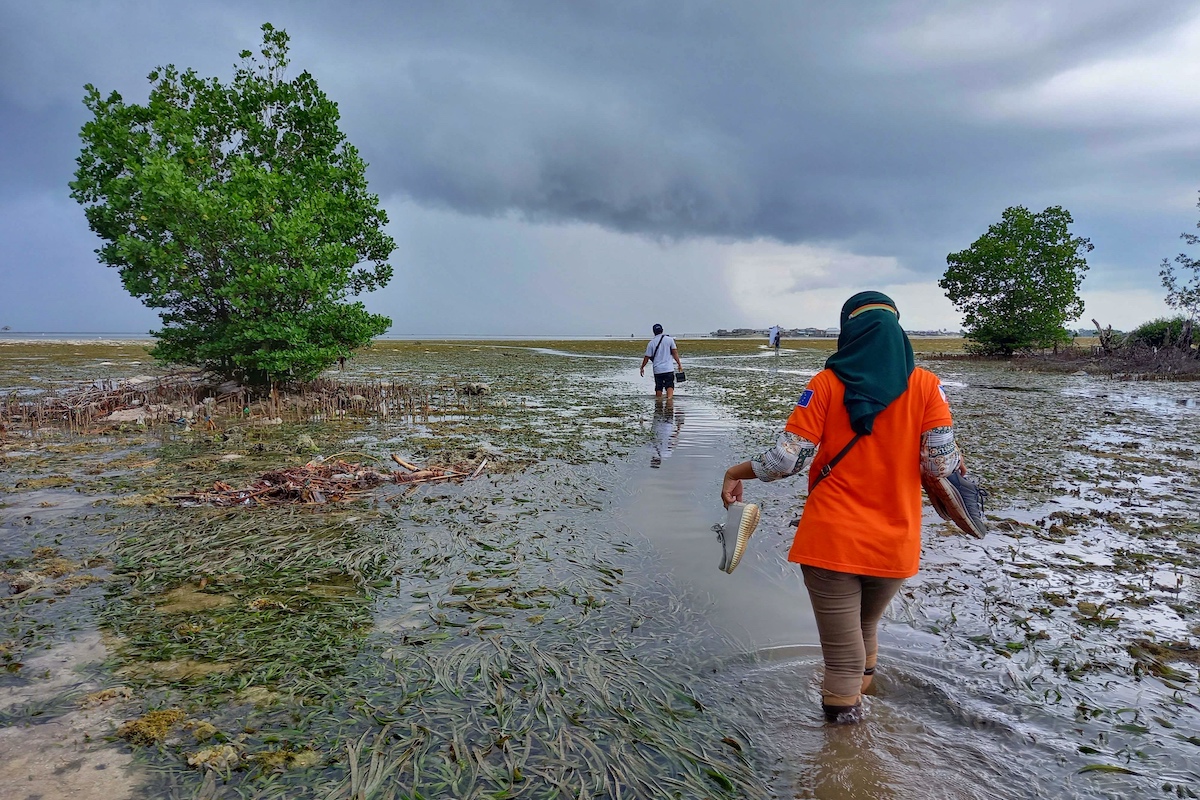
FSD staff and a volunteer traversing tidal flats to give a risk education session to a nearby village in Barangay division. Low tide is the only time possible to reach this region. (The Philippines, 2021)
Philippines
Context
Mindanao Island, in the south of the Philippines, has known decades of conflicts between different rebel groups and the Philippine government. Each period of conflict has left behind unexploded or abandoned ammunition, putting in danger the lives of the inhabitants of the region.
Following several peace agreements between rebel groups and the government, the region accelerated its pace towards autonomy.
In 2019, after more than 50 years of conflict and following a referendum, the Muslim part of the island of Mindanao gained autonomy and officially became the Bangsamoro Autonomous Region in Muslim Mindanao (BARMM).
The growing issue of improvised explosive devices (IEDs) in the BARMM is a problem of uncleared explosive ordnance since nearly all recent incidents of IEDs involve items of repurposed unexploded ordnance. They are often found buried in village centres and adjacent fields, in community facilities or even near schools.
This encouraged FSD to develop a mine action programme involving all parties to the peace agreement, to restore trust among all parties to the conflict.
We were told that a nine-year-old child found a mortar shell close to the lake and brought it back home to play with it.
Merlene Usman-Degay
Community Liaison Officer for FSD in the Philippines

Timeline
FSD in the Philippines
FSD began working in Mindanao in 2005 to support the peace process, providing technical expertise to the Philippine government and the Moro Islamic Liberation Front (MILF).
In 2007, in partnership with the Philippine Campaign to Ban Landmines, FSD proposed establishing a mine action programme to improve security for the people, support reconstruction and build confidence in the peace process. In 2010, the Philippine government and the MILF signed a peace agreement to support the implementation of the project.
In 2012, FSD started mine action activities in Mindanao.
Stories
News from the Philippines
LIFE-SAVING INFORMATION
In the southern Philippines, island of Mindanao, thousands of people have to live with the constant threat of unexploded ordnance. Children are particularly vulnerable to the dangers of these items. FSD’s teams are doing everything they can to protect them from these risks.
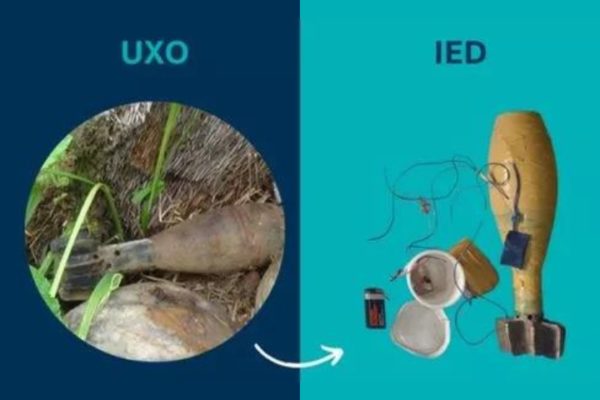
UXO ➡️ IED
In the Philippines, armed groups collect unexploded ordnance (UXO) such as this mortar remnant to make improvised explosive devices (IED). FSD acts as a facilitator between the different parties to prevent this type of practice […]
A LONG INVESTIGATION WORK
In 2023, our teams surveyed 250 villages suspected to be contaminated by unexploded ordnance or improvised explosive devices in the Philippines.
newsletter
Where is FSD currently working in Ukraine? What does a landmine look like? Answers to your questions, once a month.
- News from the field
- Demining videos
- Interviews with experts
- Events
- Job offers
